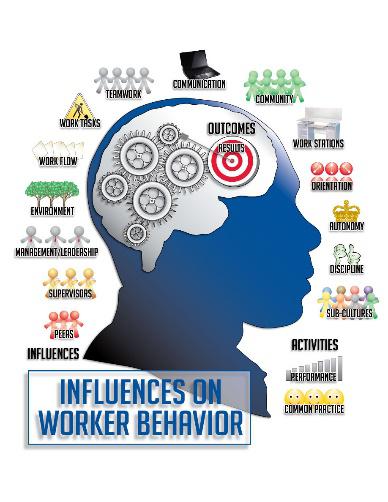February 19 2024
By: Shawn M. Galloway
Imagine watching a single scene from someone's life and assuming you understand the entire plot, neglecting the unseen backstage elements contributing to their actions. Or judging a book solely by its cover, ignoring the complex chapters and external circumstances that shape each character's narrative within the story of the relationship. This cognitive bias is called the fundamental attribution error.
Falling into the fundamental attribution error trap is quite common, as it aligns with our natural cognitive tendencies. Humans often prefer simple explanations for behavior and may default to attributing actions to a person's character rather than considering situational factors.  This cognitive bias is pervasive, making it relatively easy for individuals to unintentionally overlook external influences when trying to understand the behavior of others. Awareness of this tendency is crucial in mitigating its impact on relationships and interactions.
This cognitive bias is pervasive, making it relatively easy for individuals to unintentionally overlook external influences when trying to understand the behavior of others. Awareness of this tendency is crucial in mitigating its impact on relationships and interactions.
This bias can harm relationships by fostering misunderstandings. When people consistently attribute their partners', colleagues', or employees' actions solely to personality traits and ignore external factors, it can lead to misplaced blame, resentment, and a lack of empathy. This undermines effective communication and can strain the overall health of the relationship.
To deal with any type of risk in an organization or relationship, there should be prevention efforts and recovery strategies if a mistake is made, and we fall into this trap.
To help prevent falling into the fundamental attribution error trap:
- Consider Context: Reflect on the situational factors that might influence someone's behavior.
- Empathize: Put yourself in the other person's shoes to understand their perspective and experiences.
- Broaden Perspective: Acknowledge the complexity of human behavior, recognizing both internal and external influences.
- Ask Questions: Seek clarification from the person involved to gain a deeper understanding of their motivations and circumstances.
- Challenge Assumptions: Question your initial judgments and be open to alternative explanations for someone's actions.
- Be Mindful: Stay aware of the tendency to jump to dispositional attributions and consciously strive for a more balanced view.
Incorporating these steps can enhance your understanding of others and cultivate more accurate perceptions in your relationships. However, if you are human, you will make mistakes.
To recover within a relationship after falling into the trap of the fundamental attribution error:
- Acknowledge Mistakes: Admit that you may have misunderstood or unfairly attributed your partner's actions.
- Communicate Openly: Share your realization with your partner, expressing your willingness to understand their perspective better.
- Apologize: If your assumptions have caused hurt or tension, offer a sincere apology for any unwarranted judgments.
- Listen Actively: Give your partner an opportunity to share their side of the story without interruption, actively listening to their feelings and experiences.
- Learn and Adjust: Use the experience as a chance to learn about each other's triggers and motivations, adjusting your perceptions accordingly.
- Build Empathy: Foster a deeper sense of empathy by actively seeking to understand and appreciate your partner's point of view.
Taking these steps can contribute to repairing damage caused by the fundamental attribution error and strengthen the relationship's overall health - any type of relationship.
"When it comes to interpreting other people's behavior, human beings invariably make the mistake of overestimating the importance of fundamental character traits and underestimating the importance of the situation and context. We will always reach for a ‘dispositional' explanation for events, as opposed to a contextual explanation." — Malcolm Gladwell
"Synergy means behavior of whole systems unpredicted by the behavior of their parts." — R. Buckminster Fuller
"The error lies in our inclination to attribute people's behavior to the way they are rather than to the situation they are in." — Chip Heath

Shawn Galloway, CEO of ProAct Safety, is an expert in safety excellence. With almost thirty years of experience, he is a highly sought-after advisor, keynote speaker, and expert witness. Shawn has become a trusted partner to leading organizations across various industries worldwide. He ranks in the top 1% of the most prolific writers in his field, having authored over 500 articles and several bestselling books. He also launched the world's first safety podcast, Safety Culture Excellence©. As a recognized authority in safety, Shawn has received awards such as being named among the Top 50 People Who Most Influence EHS and a Top 10 Speaker, among others.
He is a regular guest on Bloomberg, Fox News, The Daily Mail, Dubai One, U.S. News & World Report, Sirius Business Radio, Wharton Business Daily, and leading safety magazines and podcasts. Shawn also serves as a member of the Harvard Business Review Advisory Council, Forbes Business Council, and Fast Company Executive Board, enabling his influence to shape safety thinking and strategy at the executive level.
